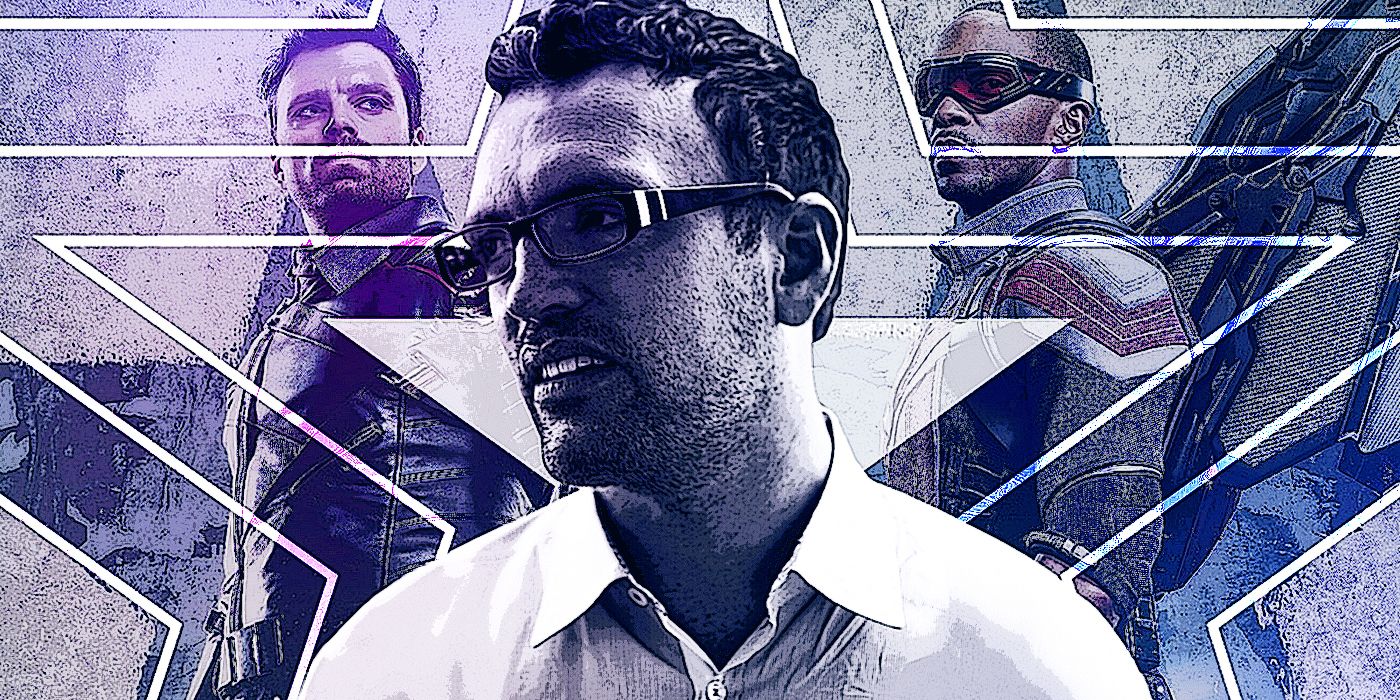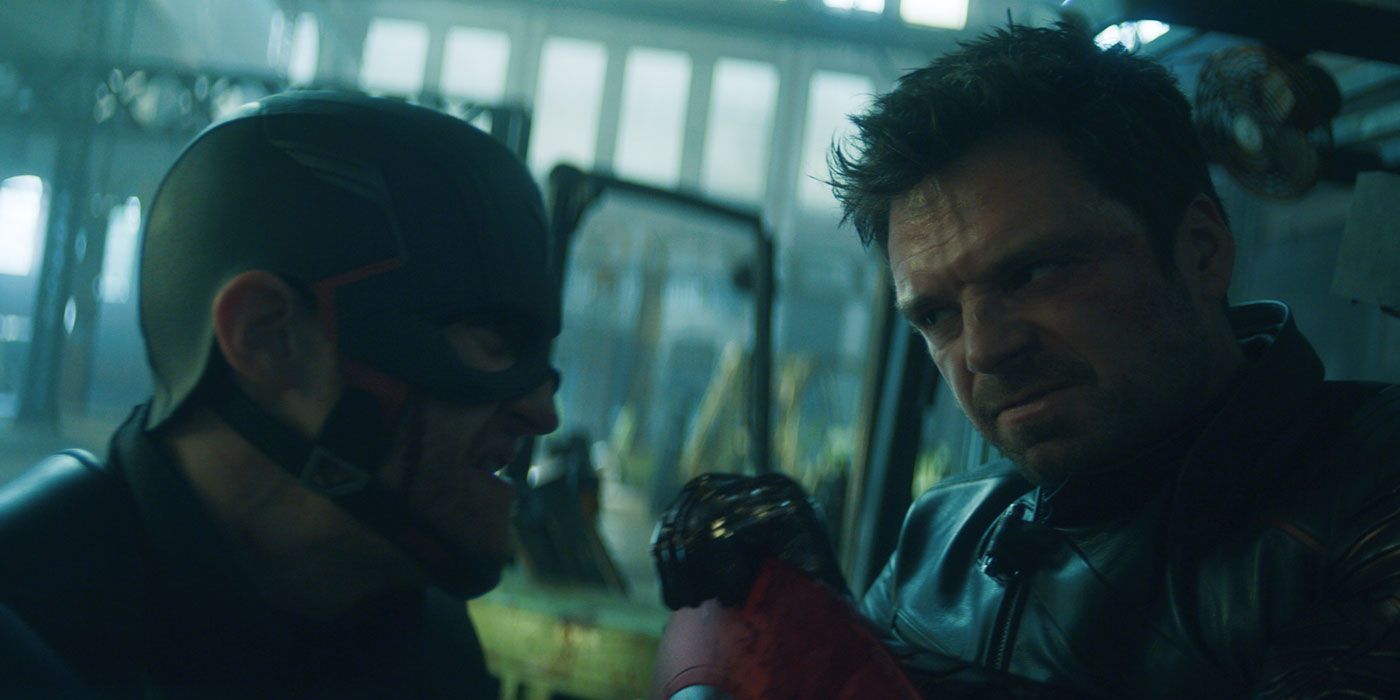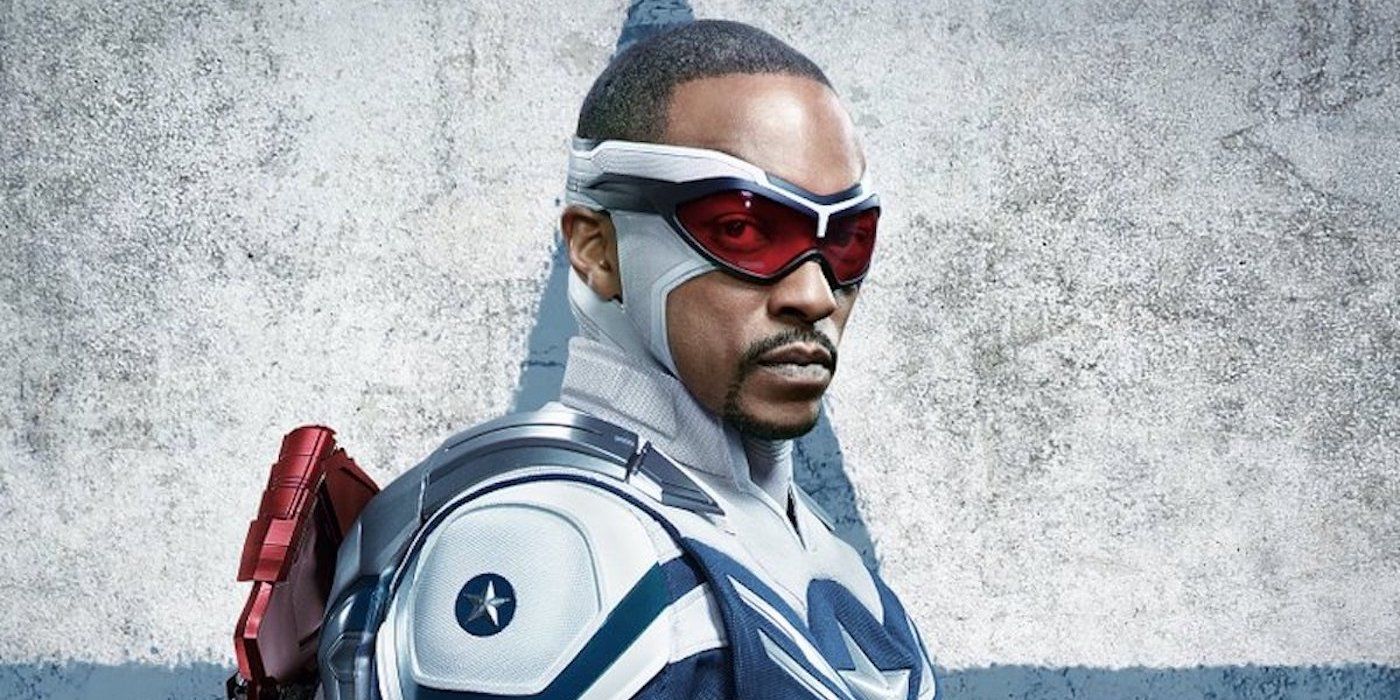On a musical level, The Falcon and the Winter Soldier represents the way much of this new phase of the MCU is operating in the world of television — specifically with composer Henry Jackman treating the six-episode series like a full-length feature, one operating as a functional sequel to previous entries in the Marvel universe, specifically Captain America: Civil War and Avengers: Endgame.
Fortunately, he had plenty of experience playing and innovating within this genre: Jackman's early work scoring superhero tales began with the comic book adaptations Kick-Ass and X-Men: First Class. Below, he reveals how much the pandemic did — and didn't — affect his work, what it was like finding his own spin on an iconic Alan Menken tune for the series, and why writing the signature theme really meant the opportunity to finish a musical motif he'd originally written years ago.
Collider: It's a pleasure to speak with you about the show. How does it feel to have it all out there now?
HENRY JACKMAN: Oh, it's great. Well, one of the great things about it all being out there is not racking your brain, if you've done some interviews when it's only episode three, you have to rack your brains, because I've got the whole story in my head, to make sure you don't put your foot in your mouth, and it's got something that hasn't yet been released, which is a particular sin in the Marvel Universe, given how many cool reveals and everything there are. So yeah, the fact that millions of people have now seen it and there's nothing yet to come is great.
Absolutely. In terms of that, you of course have had plenty of Marvel experience prior to the show. Was making this different, from your perspective?
JACKMAN: Yes and no. Well, I'll tell you what was different was a global pandemic. That was not on the cards. But funnily enough, having said that, it's amazing how we all adjust. If you spoke about that as a prospect in 2006, it would seem like some apocalypse that would ruin everything. But it's amazing how quickly we found a way to adapt. Obviously, things got delayed a little bit and you would think recording orchestras and the musicians and filmmakers and directors and all the rest of it would be supremely challenged. But with the wonders of technology, it's amazing how quickly you adapt. And I would say halfway through the process, by the time we got to April of last year, we were on a creative roll that I didn't feel was compromised in any way, both in the communication with the filmmakers, getting the music written and even getting the music recorded.
So it was a bit of a head scratch in terms of how to move forward, creatively. We quickly got on top of that. And in other ways it was, to be honest, it was very similar. I hadn't worked with [director Kari Skogland] before, but she's great. And it's that great thing Marvel often do, where they find someone with the intelligence to embrace the heritage and the stylistic aesthetics at Marvel, whilst bringing something of their own to the table, and it's those directors who simultaneously do both of those things who I think are really successful, like what the Russos did with The Avengers. They're absolutely archetypal Marvel movies, but you can feel the directorial imprint of the Russos. And I think, actually similar. There were subjects in the show and the way it's put together, there are things I think Marvel haven't explored before, both in the tone, the story, the content, the emergence of a Black Captain America, and the style of it, some of the grounded backstory type material.
One of the reasons Kevin's such a genius, is every time something happens in the Marvel Universe, it isn't, "Oh, it's this again," it's some version of something evolving or being different or being stylistically different or musically different or addressing issues that haven't been touched on. So I think that's one of the reasons people respond so well. People can get cynical about franchises when they feel cynical because you don't want a sixth version of a movie. But in the Marvel universe, there is no cynicism because it's all heartfelt, it's all genuine, and it's all a genuine wide range of material coming from the original graphic novels. And each project seems to breathe new life into, and yet somehow still maintain... You always know it's a Marvel thing. It's like a holy grail. I'm sure other studios or producers would love to bottle whatever that magic is and reproduce it, but no one seems to be able to.
But musically, the main differences, it was double the amount of music and structurally it's obviously in six episodes. But in many other ways it did feel like a continuation. There were new themes to write like the flag smashes and Bucky's new civilian theme, but there were cool backs from Civil War and Zemo and Winter Soldier. So it was a really rich combination of doing new explorative things and pulling things from the past. And similarly in the process, it felt half like a Marvel experience I knew, but not a new experience, so it was a combination of all of the above, really.
Very cool. One new piece of music for the show is called the "Louisiana Hero" theme — talk a little bit about writing that one, because it feels like it's a really distinctive, defining theme for the series.
JACKMAN: Well, I would say that, that's really what I was setting out to do. If you listen, it only occurs in these small snippets, but in the score for Captain America: Winter Soldier, which understandably concentrates a bit more on Steve Rogers and Bucky Barnes and everything, Falcon is an important character, but doesn't get the same musical treatment as Steve Rogers. But he did have a motif. If you listen carefully to the Winter Soldier score, there's a little heroic fanfare he gets that goes, bah-buh-buhhh, but I never got past there because I always had to move on musically. And I always thought I really liked that motif, and one day maybe I could do something with it. So, the Louisiana Hero, when the tune comes in halfway through and it starts on the brass, it's actually taking that original motif and evolving it, a bit like the whole MC narrative. We've gone all the way from Falcon to the end of Episode 6, there's been a huge evolution in Sam Wilson's journey, and so it was really pleasing.
It sounds a bit intellectually pretentious, but it's really doing the same thing. The music has gone from a motif where he was playing second-in-command to Steve Rogers, so the big journey that Sam Wilson has to go on, not least of which is the burden of the shield, the burden of Steve Rogers' legacy and the burden of the racial history, when you get to hear Isaiah's story. So, there's a lot to picking up that shield, so it's really satisfying to be able to have this theme and then finish it, not just have that single line, but develop it into a whole superhero tune.
And then, because it's not like Steve Rogers, and he comes from Louisiana and his angle at coming into this is very different and not so classical. That's why I really wanted to get that rhythm in that going, with the guitars and the Hammond and everything, because I really wanted to musically signal that... Superhero orchestral ideas are great and they're very rousing, but the musical tradition of that is from classical music, it's from [ Gian Carlo Menotti's] The Consul, it's from Aaron Copland and Richard Strauss and the history of Western classical music. And you need that for the grand elevation, but I didn't want to ignore Sam's background either, so I tried to find a way to get both of those things going to demonstrate that Sam, his journey as being Captain America, he will be no less, if not a greater Captain America than any before, but you've got to hear where he came at it from. And to be able to try and weave that into the music was really challenging, but also satisfying.
Another musical moment from the show is one, I don't know to what degree you were involved with, is the drumline sequence at the beginning of Episode 2 with Alan Menken's "Star Spangled Man" composition. [Note: David Zippel wrote the lyrics for the original song.] That's a good example of you inheriting something from another composer and repurposing it.
JACKMAN: Yeah, exactly. Well, I don't want to blow my trumpet [too much]. That was an established track that worked great from before, and the idea was to jazz it up a bit, give it an extra Southern lick or two. We all know that track and it was a great recall, and the contribution to that was really just adding a few more layers that stayed in keeping with the original track. There's some jazz brass, over the top, and some cool guitar parts, and then an extra string. It was really added icing on the cake, which is also an interesting challenge because when you have something that really works, if you put too much icing on the cake, you lose the cake. But I think it worked out well.
The Falcon and the Winter Soldier is streaming now on Disney+.



